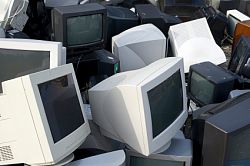

Environment Agency proposals to tighten up the rules on how waste electrical and electronic equipment (WEEE) compliance schemes operate have highlighted concerns over how last-minute deals on evidence are undermining the UK system.
The issue centres around the way the UK operates its recycling evidence process for the recycling of WEEE. Under the system, almost 40 compliance schemes which have members who are required to fund WEEE recycling have to calculate at the beginning of each year how much electrical equipment their members are going to sell. A forecast is then produced as to the tonnage and type of WEEE the compliance scheme has to either collect itself or have collected on its behalf from another scheme.
In a consultation document published earlier this year, the Agency said it was looking to improve the accuracy of how the compliance schemes calculate their recycling obligation and set actual triggers for when they must tell the Agency if their collection plans or obligations have changed. As it currently stands, the Schemes only have to tell the Agency if there is a "material" change to their plan, but the Agency has now set specific parameters for when it needs to be notified.
These moves have been welcomed as a step in the right direction, but they have revealed underlying concerns over how the UK WEEE system makes last-minute deals on evidence inevitable. This is because schemes do not know their final obligation until after the compliance year is over. The situation is further complicated by the Government making it clear that actual regulatory change to address the situation is not feasible until the recast of the WEEE Directive 2002/96/EC is complete.
The proposals are outlined in a document entitled, "Proposed changes for improving assessment of operational plans", and is published by the Agency and its counterparts in Scotland, Wales and Northern Ireland.